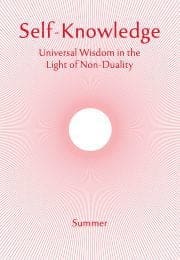Quest for Peace
The attraction of peace may draw us to peaceful environments, though the serenity we anticipate is often marred by interference. It may be gardeners’ day at the park we visit, with lawn-mowing and hedge-trimming in full spate; the church we seek for refuge hosts a choir rehearsal; the idyllic resort we fly to echoes with the drills of property development.
Inwardly, too, there are forces that disturb our quiet. We sit still, and find that we are thronged by voices and images generated in our own mind. Many abandon their efforts to meditate because of these hindrances.
But a creative approach is possible that will enable us to gain freedom from uninvited diversions. This is to view our thoughts and feelings impersonally, regarding them as manifestations of precious energy which can be harnessed and transformed into a higher form. Just as wind-energy can be farmed to drive turbines and generate electricity, the stream of our mental activities can be guided from random expression to a means of higher intuition leading to direct knowledge of eternal truth.
This conversion of experience is brought about by the mind working on itself, much as precision instruments are brought to bear on raw materials. Our precision instruments are our concentration, memory and will. Though these powers are familiar due to their operation in daily life, less familiar is the way we can consciously modify the life of our mind through their application.
Concentration is inwardly transformative in the context of meditation. Our subject of attention is usually a word, sentence or image which acknowledges and symbolises the deeper realm of peace and wisdom in our own being. While our attention is being applied thus, it is partly withheld from other subjects; we develop some inner space. Concentration deepens and in due time an interior focus is formed, somewhat like the focal point produced by a lens. In this way, our concentration on symbols of the deeper reality within our own being is creative: it creates a clearing and also a focus that has penetrative power, leading to further revelations of understanding.
Unless we are deliberately memorising something, our memory seems to function as a spontaneous activity to help us adapt to our situation, and yet with a seeming randomness over which we have little control. Memories appear and sometimes have a hypnotic effect on our attention. Brooding on incidents that aggrieved us can become a psychological habit. Yet the fresh awareness meditation gives us of our mind generally, can empower us to use memory consciously and creatively. We can invoke pleasing memories, acts of kindness, beautiful or profound ideas found in great writings. We can start storing such memories now, through reading with the aim of building such a store. The highest use of memory is to recall the presence of the supreme truth within us. This is remembrance of the ‘ever achieved’—the true nature of the Self.
As regards the will, we need to appreciate that no will is weak, though it may appear to be ineffective due to lack of exercise. Will manages the whole process of meditation, from the initial turning to the practice, remaining seated in the required way, to taking up particular thoughts, and bringing the meditation to an end. One may argue that feeling, not will, governs these stages, because ‘I meditate when I feel like it’. But for our ongoing progressive development, the capricious feelings need to recognise and follow the guidance of their master— the will.
Therefore if we adopt this detached impersonal attitude towards our inner energies, we will come to realise that we are essentially their leader. Interruptions and disturbances, environmental or subjective, will not be able to defeat us. Instead we will rise triumphant, realising their essential impotence, while at the same time we shall be blessed with the higher powers that will render our resolve indomitable.


